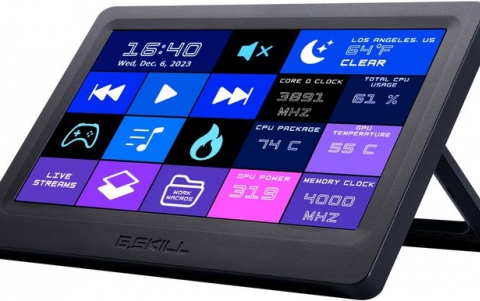
Movies on the Small Screen
BARCELONA, Spain--Six independent filmmakers debuted their made-for-mobile movies at the 3GSM World Congress on Monday
In November, Robert Redford's Sundance Film Institute and the GSM Association (GSMA) commissioned six filmmakers to produce five films exclusively for distribution on mobile handsets. Each was to be about three to five minutes in length.
While movie trailers and other videos have been shortened and shrunk for the tiny screen, the purpose of the program between Sundance and the trade group was to allow independent artists the freedom to create short films without the constraint of trying to make them marketable to a particular audience.
"It's very different from previous iterations of mobile TV," said Bill Gajda, chief marketing executive for the GSMA. "There have been mobisodes and trailers, but they were designed to make you watch more TV or buy a ticket for a movie."
The directors, who have previously screened movies at the annual Sundance Film Festival in Park City, Utah, were given $20,000 and asked to be as creative as they liked.
The result was five very different films. Jonathan Dayton and Valerie Faris, who have been nominated for an Academy Award this year for their feature film, Little Miss Sunshine, produced a mobile film called A Slip in Time, a motion study of slapstick comedy.
"This is a new medium with a lot of challenges that we are all just beginning to explore," Dayton said. "But what is exciting is that you have a couple more billion screens to show your movie."
John Cooper, director of programming for the Sundance Film Institute, said it was important to get independent funding for these initial films so artists could experiment with the medium.
"It can be very limiting when you're thinking about where the money is coming from to make this work," he said. "Creativity can be squashed before you've had the chance to examine the medium. We wanted to use this moment in history to get people we know to play around with it."
Today in the U.S. market, consumers sign up for data packages on top of their monthly voice fees to get access to video clips. Sprint Nextel offers three data packages for $15, $20 and $25 per month. Verizon Wireless has a service it calls V Cast that costs $15 per month, or $3 for the day.
But making movies especially for mobile phones will likely cost more than repurposing content that has been developed for a different medium. Some operators have suggested adding advertisements to video clips to help subsidize the cost.
Maria Maggenti, one of the filmmakers, who created Los Viajes de King Tiny--the story of a small dog who takes off by himself while his owner is at work--expressed reservations about adding advertisements to mobile movies.
"I would love to make another short film," she said. "But what I fear is that the medium might be used for advertising. And I don't want to be a part that."
GSMA's Gajda said he sees people eventually paying for premium content outright.
"Seven billion dollars was spent last year on ringtones," he said. "And if people can pay $7 billion for ringtones, I think there is a market to expand the mobile video market. At the end of the day, people will flee to quality."
The five films are being shown exclusively at the GSMA's Congress this week with wide distribution to mobile audiences beginning February 15. For more information about the films, visit www.sundance.org/globalshortfilms
While movie trailers and other videos have been shortened and shrunk for the tiny screen, the purpose of the program between Sundance and the trade group was to allow independent artists the freedom to create short films without the constraint of trying to make them marketable to a particular audience.
"It's very different from previous iterations of mobile TV," said Bill Gajda, chief marketing executive for the GSMA. "There have been mobisodes and trailers, but they were designed to make you watch more TV or buy a ticket for a movie."
The directors, who have previously screened movies at the annual Sundance Film Festival in Park City, Utah, were given $20,000 and asked to be as creative as they liked.
The result was five very different films. Jonathan Dayton and Valerie Faris, who have been nominated for an Academy Award this year for their feature film, Little Miss Sunshine, produced a mobile film called A Slip in Time, a motion study of slapstick comedy.
"This is a new medium with a lot of challenges that we are all just beginning to explore," Dayton said. "But what is exciting is that you have a couple more billion screens to show your movie."
John Cooper, director of programming for the Sundance Film Institute, said it was important to get independent funding for these initial films so artists could experiment with the medium.
"It can be very limiting when you're thinking about where the money is coming from to make this work," he said. "Creativity can be squashed before you've had the chance to examine the medium. We wanted to use this moment in history to get people we know to play around with it."
Today in the U.S. market, consumers sign up for data packages on top of their monthly voice fees to get access to video clips. Sprint Nextel offers three data packages for $15, $20 and $25 per month. Verizon Wireless has a service it calls V Cast that costs $15 per month, or $3 for the day.
But making movies especially for mobile phones will likely cost more than repurposing content that has been developed for a different medium. Some operators have suggested adding advertisements to video clips to help subsidize the cost.
Maria Maggenti, one of the filmmakers, who created Los Viajes de King Tiny--the story of a small dog who takes off by himself while his owner is at work--expressed reservations about adding advertisements to mobile movies.
"I would love to make another short film," she said. "But what I fear is that the medium might be used for advertising. And I don't want to be a part that."
GSMA's Gajda said he sees people eventually paying for premium content outright.
"Seven billion dollars was spent last year on ringtones," he said. "And if people can pay $7 billion for ringtones, I think there is a market to expand the mobile video market. At the end of the day, people will flee to quality."
The five films are being shown exclusively at the GSMA's Congress this week with wide distribution to mobile audiences beginning February 15. For more information about the films, visit www.sundance.org/globalshortfilms




















